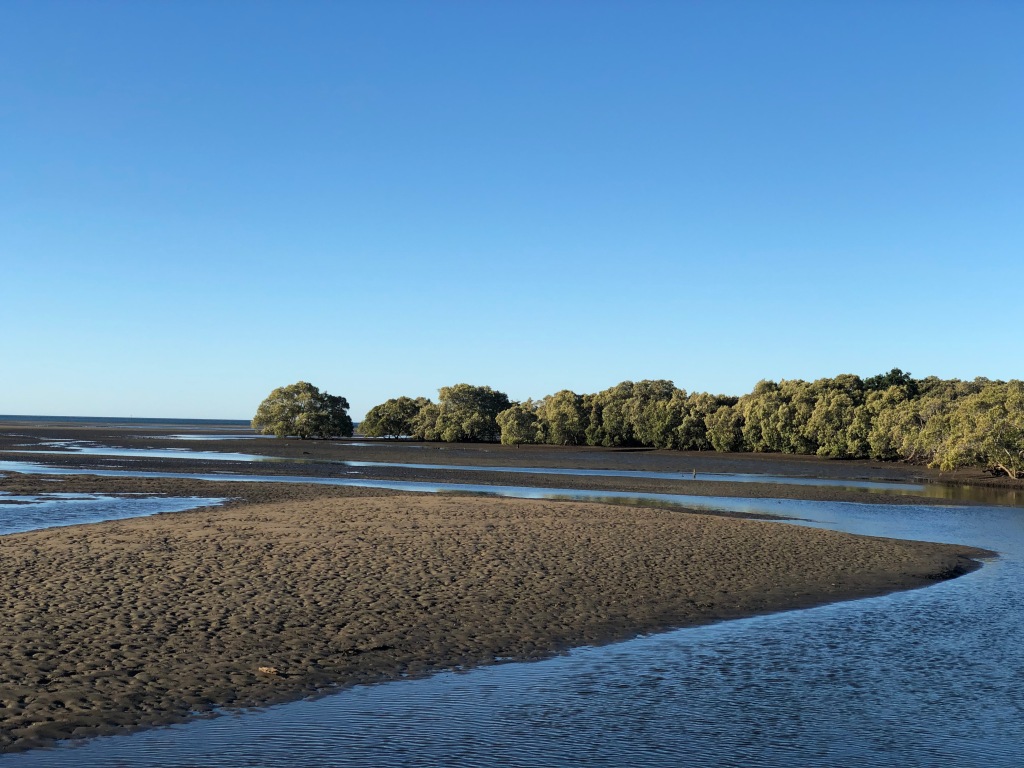Shortlisted for the Southwood Prize 2022
Deqiang Ma talks us through his and colleagues’ research article which uses a case study of mangrove and seagrass habitats in Queensland, Australia to consider different policies regarding offsetting impacts on fish habitats.
The issue
Globally, ecosystem services are imperiled due to development, especially in coastal and marine areas. To achieve no net loss of ecosystem services through offsetting is critical to human wellbeing. However, typical biodiversity offsetting approaches, such as restoration projects designed to offset losses of habitats, fail to fully offset losses of ecosystem services.

The study
Knowledge on ecosystem services offsets is still quite limited due to lack of systematic research. Given this shortcoming, Ma and his collaborators investigated how different policy settings regarding locating offset sites for offsetting impacts on fish habitats could change net outcomes of a provisioning service of fishery resources, using a case study of mangrove and seagrass habitat offsets in Queensland, Australia.
To do this, they developed a spatially-explicit model that incorporated the supply, flow and demand of fishery resources to simulate the contribution of losses and gains of fish habitats to fishery benefits including catches of species and fishery economic benefits. This model considers the demand of fishery resources, and species and habitat-specific ecological factors including species’ range, species habitats, species stock, specie dispersal ability and the area of existing habitats, which can be applied to marine habitats globally.

The findings
They found that an offset ratio of 1:1 for impacted habitats under both offsetting scenarios of close proximity offsetting and spatially unrestricted offsetting failed to fully offset losses of catches for most fish species and fishery economic benefits. Locating offsets in close proximity to impacts tended to deliver better outcomes in offsetting losses for most species and fishery economic benefits, in comparison with spatially unrestricted offsetting.
These findings can contribute to framing a better fish habitat offsetting policy, which is urgently needed for marine conservation. Achieving no net loss of fishery resources is essential to achieve two of the UN Sustainable Development Goals: Goal 14 regarding the sustainable use of marine resources and Goal 2 of zero hunger. Their work demonstrates how ecological knowledge from disparate sources can be brought together to test and inform conservation policy.
About the author
Deqiang Ma is a postdoctoral research fellow at University of Michigan – Ann Arbor. As a conservation scientist and applied ecologist from China, his research focuses on human impacts on biodiversity and ecosystem services under climate change. He is particularly interested in quantitative decision analysis to inform environmental policy setting for better conservation of biodiversity and ecosystem services.
He is currently working on forecasting future changes in the spatial overlap between humans and wildlife under climate change. He received his PhD from the University of Queensland in 2022, under the supervision of Prof. Martine Maron and Prof. Jonathan Rhodes. His PhD focused on how to design ecosystem services offsets in coastal areas, which formed the basis for this research article.
Read the full article, “The consequences of coastal offsets for fisheries” in Journal of Applied Ecology
Find the other early career researchers and their articles that have been shortlisted for the 2022 Southwood Prize here!

